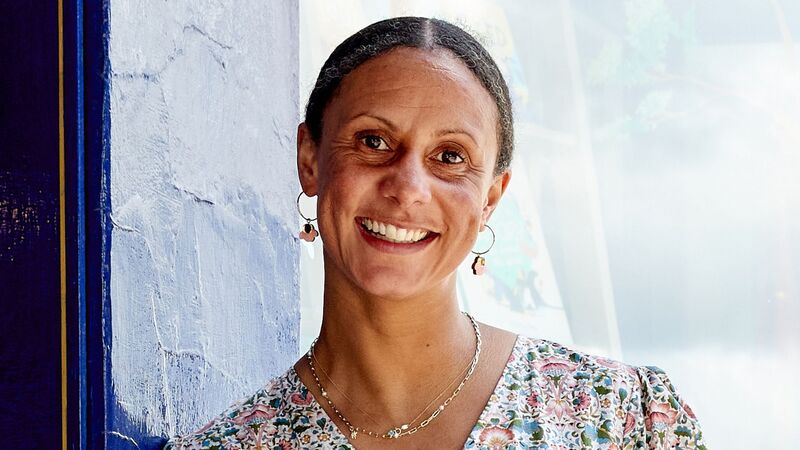You are viewing your 1 free article this month. Login to read more articles.
Trade cautiously optimistic for autumn—if bookshops can remain afloat
As schools reopen, bookshops wait for a potential second wave of infections, and publishers look to get staff back to the office, The Bookseller asked industry leaders for their expectations for the autumn ahead.
The trade is resolutely optimistic about the autumn, despite the ongoing threat to high street booksellers from a further lockdown which could follow any uptick in coronavirus cases. Trade bosses also told The Bookseller of concerns around the consequences of localised outbreaks, which could disproportionately impact distribution operations and book supply during a key part of the year.
The fortune of bookshops is foremost in most publishers' thoughts. "Collaboration between publishers and retailers is more important than ever, and this is a critical moment for independent bookshops in particular. We’re working closely with all our retail partners to offer our support and make the most of this opportunity," Penguin Random House UK c.e.o. Tom Weldon said.
David Shelley, c.e.o. of Hachette UK, said a further coronavirus break-out concerned him, but added: "We are hugely better prepared as an industry than we were in March, and more ready to face what the pandemic throws at us."
There are also questions about when and at what levels publisher staff will return to offices, though this comes with a sense that it may be a time for workplace renewal, with Bonnier Books last week announcing the introduction of permanent flexible working. C.e.o. Perminder Mann told The Bookseller this week that Bonnier staff could successfully work from home and this would be part of the company's policy once its offices reopened fully. Charlie Redmayne, HarperCollins UK c.e.o, struck a cautious tone. "There will be a new way of working, but the office environment still has an important part to play."
A rethink was also called for, particularly around the sector's commitment to diversity. 'I think publishing, as a whole, has a unique chance to recalibrate a little bit," said Influx Press co-founder Kit Caless.
There was also a reminder of how author income had suffered during the pandemic, with Nicola Solomon, Society of Authors c.e.o., saying it had been a "tough year for authors and we don’t see much easing up in the autumn". Referencing the SoA's emergency fund, she added: "We would urge all of you to help authors, who are the bedrock of our industry."
Blake Friedmann m.d. Isobel Dixon, current Association of Authors’ Agents president, said: "Commercial pressures across the trade threaten to impact disproportionately on authors, and good agenting is more crucial than ever."
 Charlie Redmayne
Charlie Redmayne
HarperCollins UK c.e.o.
Throughout the Covid crisis, Amazon has grown its market share significantly. The challenge for bookshops is how strongly they are able to come back and regain that lost business. Publishers must work with them in order to maintain a diverse retail landscape.
Many companies seemingly moved their entire publishing programmes out of April–July, which has built significant congestion in the autumn, and while exciting, it will make it challenging for individual books to find the promotional space to break out. With all the big books coming out in that period, it is likely that the market will be up year on year despite a continued economic downturn. Good for booksellers, but challenging for publishers. At HarperCollins, we kept much of our publishing programme in place during lockdown, which proved to be the right decision: we built market share and profitability, and had five number ones. We move into the autumn with an equally strong list.
Offices are slowly reopening, and I hope we will see this accelerate through the autumn. There will be a new way of working, but the office environment still has an important part to play. The industry continues to respond to the challenges raised by the Black Writers’ Guild and to prioritise work on the diversity deficit within its content and businesses. We have committed to accelerating progress, and we will do so. Finally, business must push for a breakthrough in Brexit talks—the agreement of a deal is crucial for UK publishers, and never more so than now.
 Meryl Halls
Meryl Halls
Booksellers Association, c.e.o.
Retail, and by extension bookselling, is going to face a challenging autumn and fourth quarter. There are two major generic issues due to hit imminently. First, the end of the rent moratorium at the end of September, as rent quarter day falls, and the pressure to pay delayed or deferred rents with limited income hits. Secondly, the end of the Job Retention (furlough) scheme, which is anticipated in retail circles as a precipitating moment for retail redundancies. There are currently an estimated 1.8 million retailer workers on furlough. We obviously hope that bookselling redundancies are kept to a minimum, but the loss of government support for workers has the potential to impact our sector as much as others. Added to which, the pressure for safe high street shopping will be necessary and ongoing, which brings its own practical challenges.
Bookshops may well need to start planning to welcome their Christmas consumers earlier than usual, and simultaneously they face an uphill battle reacting to the tsunami of titles coming as a result of shifting publication schedules and concertinaing of publication dates. Booksellers are keen not to miss forthcoming titles, so the flow of information on new titles is crucial at this point. Booksellers will then need to curate and order in the right titles in the right quantities. They will want to be confident in the supply chain’s ability to replenish and restock their shops as the Christmas selling period peaks.
Booksellers will have to continue to operate on compromised, emerging high streets and online. We are lobbying the government and the trade to be vocal in their support for bookshops: we want consumers back on high streets, spending and engaging with their bookshop community. We would really welcome the trade swinging behind our #ChooseBookshops campaign, from this Super Thursday right through to Christmas. As we have said before, nobody needs to be signposted to Amazon for online purchasing.
 Asi Sharabi
Asi Sharabi
Wonderbly co-founder/c.e.o.
In the past few weeks, we’ve been busy designing our post-lockdown back-to-school “operating system” for Wonderbly. What should the “new normal” or the “new better” look like? Should we stay fully remote, or get back to the office as soon as we can? What is the best way for us to continue to do impactful work and celebrate our culture, work and success together?
During the forced lockdown period, we have enjoyed some unexpected yet significant productivity and happiness gains. But equally, remote work is not to everyone’s liking. There are some serious questions and concerns related to long-term, sustained remote work on our mental health, and the absence of serendipity and the chemistry of real-world encounters, and how they positively impact the quality of creative work and people’s mental wellbeing. Rather than starting from the extreme ends (fully remote or fully office-based), we are going for a hybrid model that is based on the principles of autonomy, flexibility and accountability. We believe that by giving individuals and teams the highest degree of flexibility and autonomy, we will continue to see more high-quality work, more accountability, productivity and happiness. Watch this space.
Perminder Mann
Bonnier Books uk c.e.o.
Mann told The Bookseller this week that Bonnier staff could successfully work from home and this would be part of the company's policy once its offices reopened fully.“The success of our overnight switch to home working for all office staff back in March, has given us much pause for thought. We know that we can do great work from home – the past six months have proved that. We also know that our teams and culture thrive with contact and so our offices will always play an important role in our business."
 Nicola Solomon
Nicola Solomon
Society of Authors c.e.o.
This has been a tough year for authors and we don’t see much easing up in the autumn. According to our research, by May 57% of authors had already seen a substantial drop in income as a result of Covid-19, and as we wait to see if the UK is about to experience a second wave of infections, these losses look set to continue.Although bookshops have now reopened, which is very welcome and sorely needed, it is likely that appearances and events will not restart until 2021 at the earliest. Schools are not booking author visits as they are too busy with key practicalities, and venues are not reopening for performances of poetry or drama. And the approaching recession will affect the livelihoods of many who need to take on other work to support their writing.
While book sales overall have held up, supermarket and online sales tend to favour established big-name authors at the expense of more diverse, emerging and midlist authors. The bumper publication of delayed and planned books in the autumn may again mean that all but the megastars get overlooked—and they have no hope of getting seen at literary festivals or events. On top of that, we are still facing a no-deal Brexit which is likely to hit export sales. The government does not seem to understand the value of books and the arts—as exemplified by the decision to cut poetry from this year’s GCSE syllabus.
In March we set up an Emergency Fund. We would urge all of you to help authors, who are the bedrock of our industry: by publicising and donating to the fund; by continuing to publish and sell as diverse and wide a range of writers as possible; and to stand together to lobby the government on all the issues that affect our members and our industry.
 Anthony Forbes Watson
Anthony Forbes Watson
Pan Macmillan, m.d.
The pandemic and responses to it have sown uncertainty, and we can sense tough economic times ahead. But at Pan Mac we look forward eagerly to the next four months, armed with clear objectives, a very strong programme and communications plans, and robust supply across all formats. Six weeks of slide have been followed by four months of recovery and we are becoming acclimatised to operating in this new environment, where many territories, channels, genres and formats work at least as well as before—and some more so. We focused on frequent, clear internal and external communication throughout the pandemic to keep everyone informed and adaptive as things change, to strengthen our sense of connection, to support each other and keep an eye on our overarching objectives. We have planned for a partial reopening of our office later this month, and will take things as they come.
We cannot know whether bookstores will remain, and we and our colleagues at [distributor] MDL are working closely with our customers to make sure they have the books they need, when they need them. Certainly the glut of autumn titles will test the bandwidth of both industry and reader. What we do know is that the pandemic has stimulated reading and the demand for content in all formats, and we have been buying and selling rights, confident in the capacity of the book to explain and entertain in a turbulent world, and in the continued buoyancy of the post-pandemic publishing marketplace.
 Robert Davidson
Robert Davidson
Sandstone Press m.d.
Growing Sandstone Press has always been like crossing a river, leaping from one slippery boulder to another. The great thing is not to hesitate. This year has changed that, though, and hesitation has become an essential quality. As an immediate response to the crisis, we reorganised the team, renegotiated our premises, and deferred around 25% of our 2020 publishing until next year. As a result, the 2021 programme is almost completely signed, with design and planning further advanced than would otherwise have been the case. Anticipating an autumn big-publication flash flood, we wonder how best to place our books before the eyes of readers. There will be little space on the shelves, and there may not even be shelves. However that shakes down, the word “digital” is at the forefront of all our minds, as is the word “adapt”. The changes we made in 2019 have stood up well. Our books are making an impact, the company’s abilities are increasingly recognised, and everything gets stronger, albeit slowly. Reaching people in sufficient numbers was and remains our most stubborn challenge. The time we are in is one of unpredictable change, but perhaps also opportunity.
 David Shelley
David Shelley
Hachette UK, c.e.o.
As we approach the autumn, despite everything I confess to feeling cautiously optimistic about book sales. The last few months of the pandemic have proved that whatever is happening in the world, or to our supply chain, people who love books will find ways of buying them. Readers have shown themselves to be passionate and committed to our authors’ work in a way that has defied all expectations. There is a maxim that books and chocolates are the most recession-proof products, as both are affordable, addictive luxuries, and Covid has borne this out. Our sales so far are well ahead of last year, which is as cheering as it is surprising in the circumstances.
I do think there are major challenges ahead. A second spike, or localised lockdowns would certainly disrupt things considerably. But we are hugely better-prepared as an industry than we were in March, and more ready to face what the pandemic throws at us.
The economic climate and mass redundancies that are being announced will, undoubtedly, have a major effect on the Christmas gifting market, but I think and hope the impact will be minimal when it comes to books, as research shows these are viewed as good-value presents—and more than 75% of non-fiction books sold in the last quarter were bought as gifts. So I do not believe they will suffer as luxury goods might when consumers tighten their belts and reduce their Christmas spending, as is sadly inevitable. There will be major challenges for inner-city book retailers given the dearth of both tourists and office workers, although I hope these will be partly mitigated by extra bookshop footfall in towns and suburban locations.
To my mind, we are very lucky to work in an industry that is as resilient to catastrophic events as ours has shown itself to be, but we are clearly not out of the woods yet. There is a huge amount of contingency planning ongoing at Hachette, and across the supply chain and industry, to prepare for the most important time of the year.
 Hannah Griffiths
Hannah Griffiths
Head of literary acquisitions, All3Media
It’s been an unusually busy period for TV development. With production on pause since March, producers have had more time to read and consider the kind of material that might be possible to produce within the new restrictions of filming. A greater number of books were optioned than in a typical six-month period, and I wonder whether there will be a calming down of activity now that slates are fuller and production has resumed.
The success of recent dramas like “Normal People” and “I May Destroy You” will, I imagine, will give rise to a new interest in fiction with a strong voice/point of view. TV calls this “authored”. I think we will see an increased appetite for stories set outside London and stories that feature underrepresented characters. The interest in true crime and factual drama shows no sign of slowing. These titles continue to attract huge attention from producers.
 Kit Caless
Kit Caless
Influx Press co-founder
At Influx, we’re not too pessimistic about the future in terms of book sales and our ability to survive. Having birthed the press in the height of the austerity era Tory administration, we’re under no illusions about how our Etonic leaders like to run the country. What we are most keen on is the survival of independent bookshops, who are our lifeblood and biggest supporters. We have built a strong following over the years and we are very humble and grateful to our subscribers and regular readers for their support in 2020.
Other small presses like us must survive too. And Other Stories, OWNIT!, Fitzcarraldo, Comma, Dead Ink, Bluemoose, Jacaranda, Hope Road, Galley Beggar, etc, all need to keep afloat. What we have built as a collective of (fairly) like-minded publishers over the past six or seven years has been quite an achievement, and I can’t see such a boon in successful independent publishing happening from scratch again in some time.
I think publishing, as a whole, has a unique chance to recalibrate a little bit; employ some fresh young people to mix things up; develop ways of reaching readers it traditionally doesn’t seem to care about; and to at least hire, say, five working-class people at some point. If publishing continues the way it always has, without radically altering who gets a say in commissioning books and who doesn’t, it will become irrelevant fairly quickly. It’s a drum being banged by a number of people in the industry, but until the sound shatters the glass (ceiling), we won’t see any meaningful change.
 Isobel Dixon
Isobel Dixon
Association of Authors’ Agents president
The flight from offices in the Spring was swift; return will be gradual and complex. Much coronavirus-induced innovation, including flexible working, will continue in hybrid fashion. ‘Hybrid’ or ‘blended’ will be key words, also for future book events. The Edinburgh International Book Festival was a sterling example of what can be done; technological lessons will endure, but financial models must adapt. The effect on rights fairs is yet to be fully calculated: while video-calling proliferates, the serendipities of rights-selling in person are missed. We expect Virtual Frankfurt October will feel subdued, while in stores new publications jostle for space.
The Black Lives Matter movement swept a searchlight across issues of race at every level of society, highlighting diversity shortcomings in the book trade and galvanising swifter action. Where toes had been dipped, leaps were made; there can be no shuffling back. Regional hub openings were speeded up, distance working innovations contributing to inclusivity possibilities. More cross-industry work must follow.
The possible speed of change is a heady lesson and coronavirus has been an extraordinary intensifier. It also highlighted and intensified other disparities – digital poverty, new WFH pressures on working mothers and carers without usual support networks. Government must also address economic structures that contribute to the disparity of opportunity and unfair competition between bricks-and-mortar bookstores and multinational online retailers. Amazon’s Covid-19 income boost is astronomical, supermarket sales rose; retail chains and indie booksellers are far from out of the woods, while huge numbers of cultural institutions are at risk.
Digital piracy and reckless territorial encroachments in online selling make firmer action on online economic harms imperative. Commercial pressures across the trade threaten to impact disproportionately on authors, and good agenting is more crucial than ever. It’s vital that government understands that low prices are not the only way consumers benefit, if it leaves inordinate power in the hands of the ultra-wealthy few, while other parts of our cultural ecosystem wither and creators are overlooked.
The threat of a no-deal Brexit looms – negotiations must protect the UK’s copyright regime and cross-industry lobbying continues. The AAA is also part of a multi-organisational push for the government to engage directly with a UK Creators Council, representing hundreds of thousands of largely freelance creators, including writers and illustrators.
We have great battles on our hands. We need shared knowledge – also with other countries – and healthy competition. There has been little time for leisure for those managing through the crisis; we hope for some pause for reflection ahead. I take some comfort in the rise in reading and the hope that, as with WWII, that uplift will endure. I am grateful to be part of the dynamic cultural force that is publishing: now to make it work better for everyone, especially the writers, who remain our raison d'être.
 Tom Weldon
Tom Weldon
PRH UK c.e.o.
Given the ongoing uncertainty we continue to face, it would be foolhardy to make any predictions, but there are a few things of which we can be certain. As publishers, we are fortunate. While many other creative industries are struggling in a socially distanced world, books and reading continue to appeal, and we expect demand to build through autumn into Christmas. We can also expect our colleagues, and those we work with across the industry—including authors, agents, printers and booksellers—to continue to show commitment, creativity and ingenuity in ensuring that books reach the hands of readers through the coming months, whatever they may bring.
At Penguin Random House, we feel relatively optimistic. Our autumn publishing schedule is one of our strongest and most diverse yet, and we believe we can capture a growing share of what has the potential to be a very strong Christmas market. Collaboration between publishers and retailers is more important than ever, and this is a critical moment for independent bookshops in particular. We’re working closely with all our retail partners to offer our support and make the most of this opportunity.
Publishing is an industry grounded in words, but also in people, and for that reason I see the office as continuing to play an important role. Of course, there will be changes to how we work and safety of our colleagues is paramount. But I believe that the magic of people coming together physically—to collaborate, spark ideas and build relationships—is what drives this industry, and will continue to do so.














